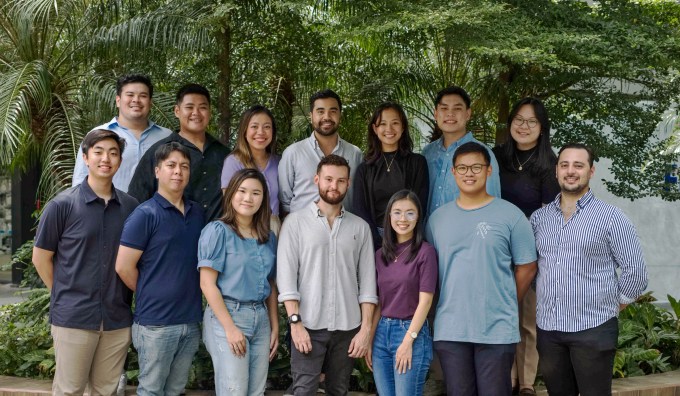The proliferation of supply providers give prospects many decisions, however means chaos for busy eating areas that should handle orders throughout a quantity of apps and channels. Many kitchens deal with this by juggling a quantity of objects at a time, one for every app. Klikit desires to maintain away from losing Southeast Asian meals companies from “tablet hell” by aggregating order information from all apps into one platform. primarily based in Singapore, the startup simply exited stealth mode with $2 million in pre-seed funding.
The spherical was co-led by world Founders Capital and Wavemaker companions, with participation from Gentree Fund, AfterWork Ventures, Reshape Ventures, Nordstar, Pentas Ventures, transferring Capital, Gojek co-founder Kevin Aluwi, NasDaily’s Nuseir Yassin, YouTuber Lazar Beam and Radish Fiction founder Seung-yoon Lee. Strategic angel retailers embody executives from Gojek, YouTube and Flash espresso.
Since launching seven months in the past, klikit’s SaaS platform, klikit Cloud, has been used to service better than $2.eight million in orders throughout a hundred and fifty manufacturers inside the Philippines, Malaysia, Indonesia, Singapore, Taiwan and Australia.
prospects presently embody Bistro Group (the Philippine franchisee of TGI Fridays, laborious Rock Cafe and Buffalo Wild Winds, Flash espresso and ghost kitchen startups MadEats and simply Kitchen.
Klikit was based in 2021 by Christopher Withers, who has an fantastic deal of expertise inside the on-demand space—he was beforehand vp of marketplaces at GoJek, chief method officer at Bangladesh experience-hailing platform Pathao and launched UberEats inside the Asia Pacific.
all through the pandemic, whereas at GoJek, Withers moved residence to Australia to work remotely. He additionally owned and operated a ghost kitchen.
Withers instructed TechCrunch he’s on a daily basis been fascinated by the meals supply space.
“i started my ghost kitchen as a consequence of i’ve on a daily basis needed to actually expertise the difficulties of working a restaurant firsthand, comparatively than sit hypothesizing on the sidelines or from behind my laptop computer as I constructed out a lot of these great app marketplaces,” he mentioned.
all through that time, Withers was overwhelmed by the quantity and worth of platforms, objects, computer software, adverts and social media he needed to juggle. in consequence he needed to get hold of much less difficult methods to handle them and launch new manufacturers.
Withers explains that current F&B computer software aren’t fitted to so a lot of supply eating areas and cloud kitchens, and fewer than 2% of retailers in Asia have constructed-in their supply orders with legacy level-of-sale purposes. This leaves kitchens and workers managing orders throughout completely different apps and objects, which mustn’t be solely time-consuming however in addition ends in missed orders, errors, confusion and fundamental chaos.
“Many operators check with this as ‘tablet hell’ and a pair of of our purchasers had as many as 20+ objects—taking over an whole pantry closet’s worth of exact property—for a single kitchen location!” Withers mentioned.

klikit’s crew
Klikit differentiates from legacy POS purposes, which have been created for single-mannequin firms, by enabling eating areas and ghost kitchens to handle a quantity of meals manufacturers throughout areas and channels on a single machine. options embody updating menus throughout supply apps, which klikit is in a place to do quickly as a consequence of it has official API agreements with apps like GrabFood, foodpanda, GoFood and UberEats. It provides on-demand entry to historic information analytics (in distinction, many F&B computer software purposes restrict information to time-restricted viewings), collectively with on daily basis gross sales, product mixes and channel breakdown.
Since many eating areas in Southeast Asia typically course of supply orders through social media like WhatsApp, SMS or audio messages, klikit additionally permits these orders to be added to its order dashboard so as that they’re included in its analytics.
If one in every of klikit’s purchasers has spare performance and devices, they will signal-up for entry to its digital mannequin partnerships with creators and shopper manufacturers. Klikit is now working with creators who’ve a mixed following of 38 million inside the Philippines and Australia to launch two “creator drops” in late 2022. Withers says klikit related with extreme YouTubers as a consequence of they’ve the clout to compete in direction of quick meals giants, advertising and marketing-smart.
Klikit’s closest rivals embody Deliverect and NextBite, however Withers says he believes a regional startup like klikit will succeed as a consequence of it may cement API partnerships with predominant supply apps.
The startup’s new funding was used all through stealth mode to lease 30 people in six nations. it might additionally use the capital for regional enlargement and including extra options by constructing its engineering crew.
In a press launch, Wavemaker companions managing companion Paul Santos mentioned, “We see klikit fixing broadly unaddressed factors for restaurateurs in each place, whereas additionally creating distinctive options for creators and varieties to earn income and have interplay with followers in solely new methods. Their imaginative and prescient strategically brings collectively the converging and solely rising tendencies in meals supply and the creator economic system.”



0 Comments